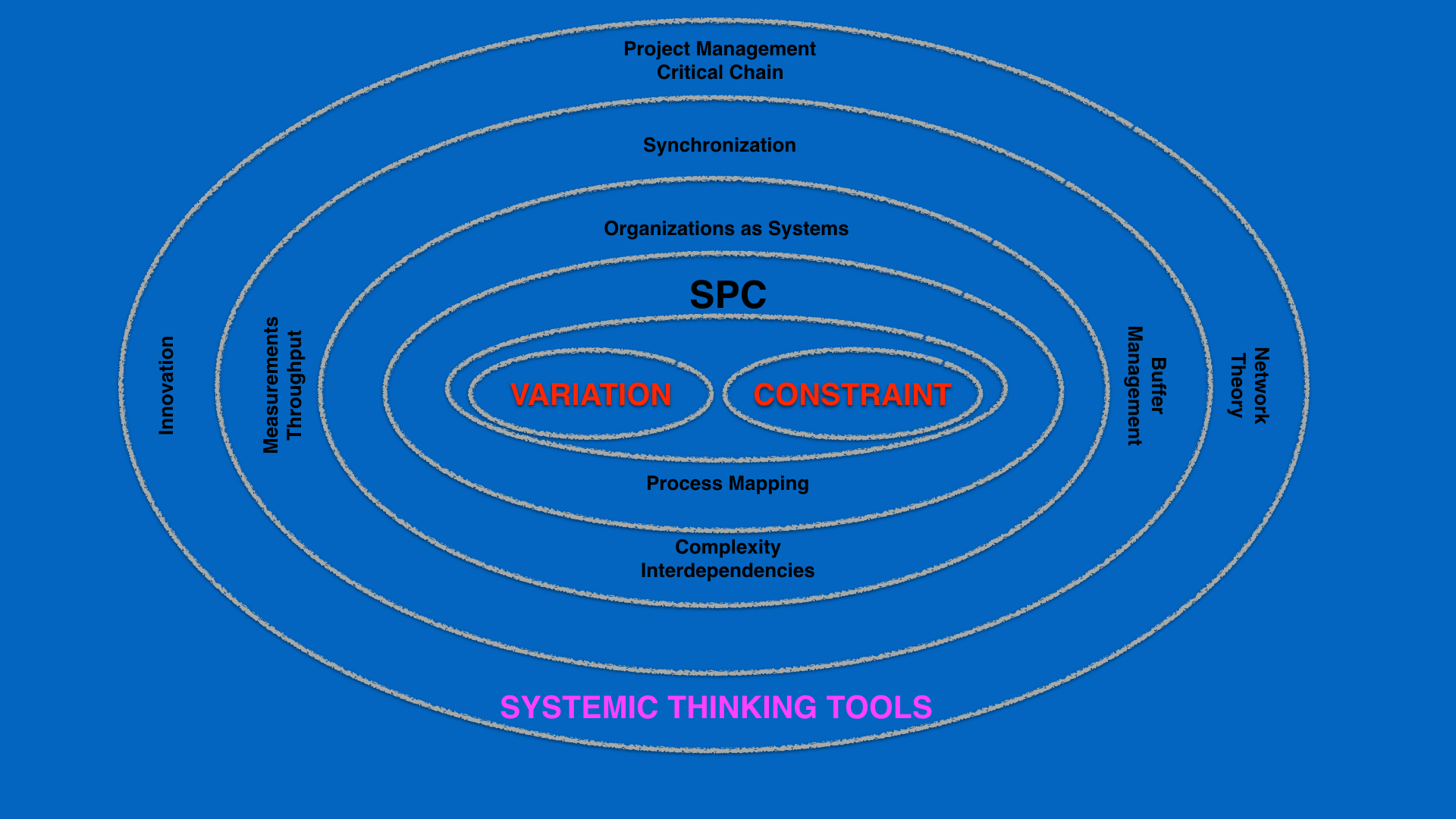Dr. Deming said it years ago – MBAs teach students to raid companies, not to manage them. In her new book Makers & Takers: The Rise of Finance and the Fall of American Business, Rana Foroohar, assistant managing editor at Time, points a finger at business education. She states that in spite of the increase in people studying MBAs since the 2008 crash, the health of American business has deteriorated. Business education is failing us because “basic training that future business leaders in this country receive is dictated not by the needs of Main Street but by those of Wall Street.”
Repeating the same mistakes
How can we possibly avoid repeating the same catastrophic mistakes when Business Schools continue to teach the same subject matters? What’s more, we already know that much, if not most, of this knowledge is flawed. In her article Want to Kill Your Economy? Have MBA Programs Churn out Takers Not Makers Foroohar quotes Robert Johnson, an economist and former quantitative trader for George Soros’s Quantum fund who now heads the Institute for New Economic Thinking:
“The premise of financial theory [taught in MBA programs] is bogus…That’s why we end up living with very thin margins of safety—because of the pretense of knowledge and precision about the future which does not exist.”
Totally missing from most MBA programs is any awareness of larger consequences of leadership decisions.
“Meanwhile, the social, moral, and even larger macroeconomic consequences of corporate actions are largely ignored in the case studies students pore over. Even after the financial crisis, a survey of the world’s one hundred top business schools (most of them in the United States) found that only half of all MBA programs make ethics a required course, and only 6 percent deal with issues of sustainability in their core curriculum, despite the fact that a large body of research shows that firms that focus on these issues actually have higher longer-term performance. Instead, students are taught that what matters most is maximizing profits and bolstering a company’s share price. It’s something they carry straight with them to corporate America.”
Ignorance is business
At Intelligent Management we believe that one of the reasons that Business Schools fail to educate future leaders and managers in a way that is appropriate for the 21st century is that they are simply ignorant of the fact that an alternative knowledge exists. They are unaware that managing businesses in today’s complex world requires quite different knowledge and methods, based on an understanding of systems, networks and ethics. They continue to regurgitate what is familiar to them and the power of certain brands in the education world always persuades students to sign up. This is still true today. As Foroohar puts it:
“If you wonder why most businesses still think of shareholders as their main priority or treat skilled labor as a cost rather than an asset—or why 80 percent of CEOs surveyed in one study said they’d pass up making an investment that would fuel a decade’s worth of innovation if it meant they’d miss a quarter of earnings results— it’s because that’s exactly what they are being educated to do.”
A New Systemic Learning Pattern for Complexity
We believe, just as Dr. Goldratt did, that business schools have a critical role in educating the leaders of tomorrow; but if they want to stand up to the challenge, they must develop a completely different structure and pattern of learning.
The starting point is the acknowledgment of complexity as the defining feature of our reality; this is the “emergent property” that has to be understood both in terms of its components and in terms of their interactions.
Leaders need to understand how to govern complexity through this blend of components and interactions; this entails journeying to the very root of what the organization they should lead is made up of and how to leverage the available profound knowledge to be leaders in the twenty-first century.
We take the opportunity in our new book ‘Quality, Involvement, Flow: The Systemic Organization’ to offer a minimally comprehensive curriculum for business schools, leaders, and managers interested in guiding the transformation of the prevailing style of management into one of whole system optimization. Although we present the elements of the curriculum in the book in a linear way as that is the way we all read, it makes more sense to present it first visually to demonstrate that all the elements of the curriculum are interconnected.
We urge all forward-thinking Business Schools and universities to take up the challenge of change and to start catering for our age of complexity.
Sign up to our blog here and shift your thinking towards broader, systemic possibilities for yourself and your organization.
About the Author
Angela Montgomery Ph.D. is Partner and Co-founder of Intelligent Management and author of the business novel+ website The Human Constraint . This downloadable novel uses narrative to look at how the Deming approach and the Theory of Constraints can create the organization of the future, based on collaboration, network and social innovation. She is co-author with Dr. Domenico Lepore, founder, and Dr. Giovanni Siepe of ‘Quality, Involvement, Flow: The Systemic Organization’ from CRC Press, New York.







Hello Angela,
I would say that there does need to be a little more detailed analysis done by the administration in the Healthcare industry, when they start looking into how to change things for the better. The administration (C Suites) seem to be blind to how the details of a situation should drive an innovative solution or process improvement in a certain areas. I have found that you can not Lead Effectively by only looking at Spread Sheets and finances alone.
Food for thought,
Gregory Ward